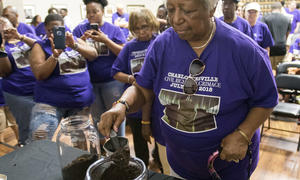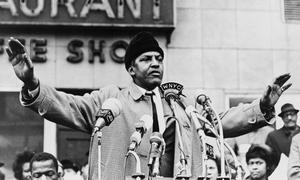Kawania Wooten’s voice tightens when she describes the struggle she’s having at the school her son attends. When his class created a timeline of civilization, Wooten saw the Greeks, the Romans and the Incas. But nothing was said about Africa, even though the class has several African American students.


